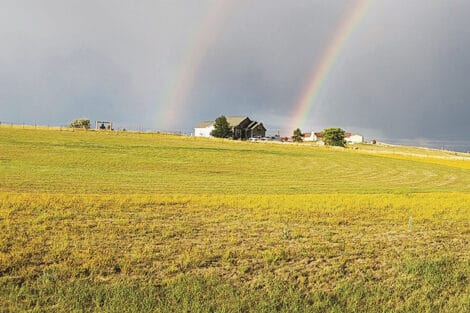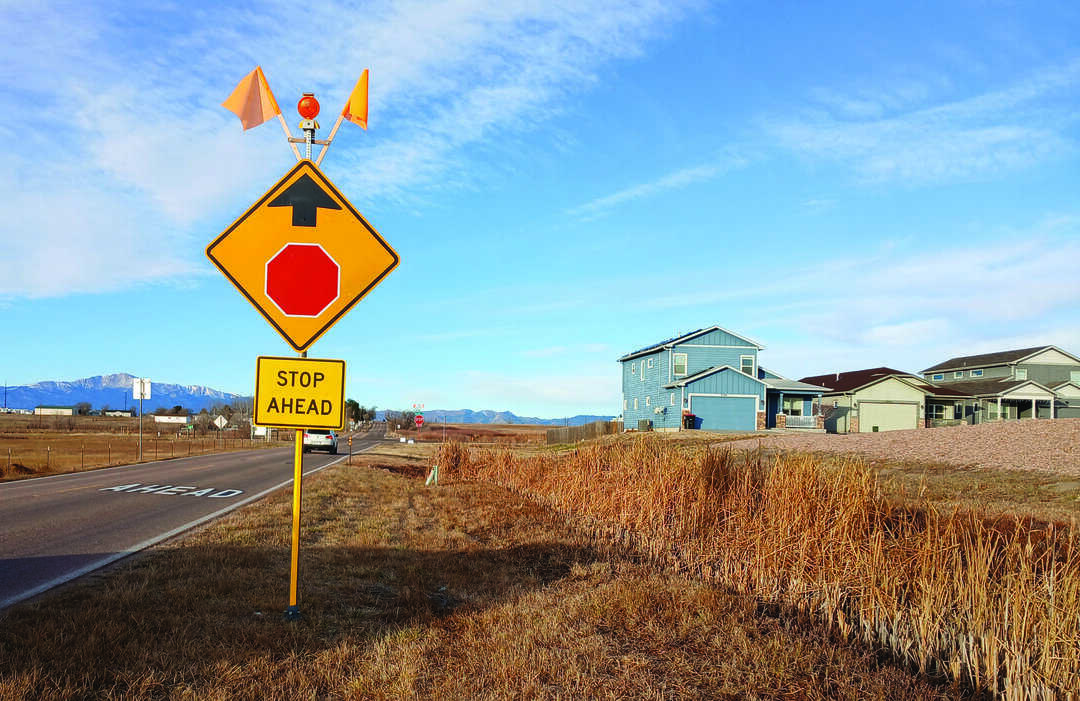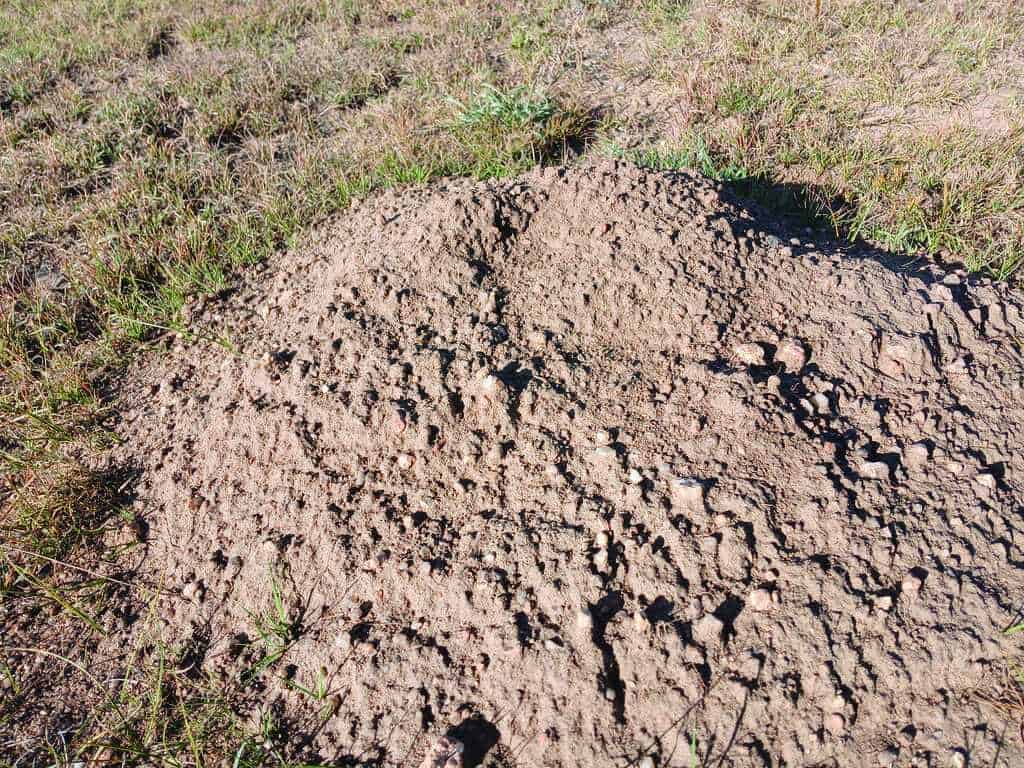Longtime local journalist Bill Radford and his wife, Margaret, live on 5 acres in the Falcon area with chickens, rabbits, dogs, cats, a flock of parakeets, goats and two horses. Contact Bill at billradford3@gmail.com.Fields of yellow
Plus prickly poppies and pesky grasshoppers
By Bill Radford
As we race into the dog days of summer and seasons beyond, it’s time to reflect on the good, bad and ugly of summer 2024.
The good
We returned from a vacation in the Midwest to find splendid fields of yellow everywhere.
A decade ago, our pasture and others were taken over by a wondrous golden blanket of what we believed to be coreopsis, also known as tickweed — a cheerful, daisylike flower. For the specific type, we zeroed in on prairie coreopsis as our best guess. While over the years we’d see patches here and there, we never saw them take over like they did 10 years ago — until this summer. My wife, Margaret, finds them glorious — and our bees apparently find them yummy.
We’re not the only ones to notice, of course. The flowers were the talk of Nextdoor, the online community hub. Some called the resurgence a super bloom.
“I’m loving the fields of yellow right now!” one person posted.
“Pluck the heads and dry them for a wonderful local tea,” another person advised.
One person found them beautiful but also “sadly a sign that fields have been overgrazed.” I’d argue against that assessment; the fields where the flowers seemed the most spectacular were ones that were untrampled and ungrazed.
Not everyone was enamored with them; a neighbor quickly mowed them all down in his field, though some have returned. Some folks on Nextdoor complained they were taking over their pastures.
Beautiful wildflower or irritating weed? As one person who did enjoy the flowers noted, “The definition of a weed is an unwanted plant, so personally I don’t have any.”
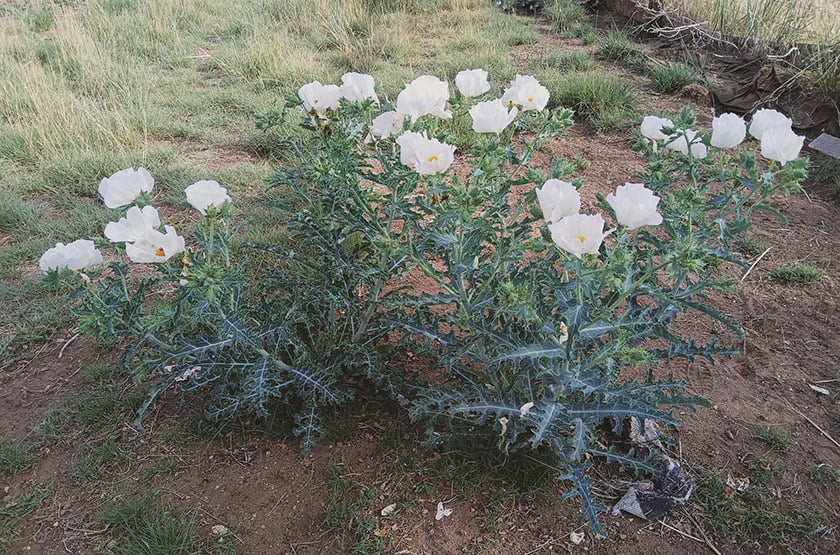
A case in point: Another plant that took center stage in many fields this summer was a big, white flower with unpleasantly spiky stems. I figured they were a weed and started pulling them from our pasture. I couldn’t find them in El Paso County’s list of noxious weeds, however, and further study online identified them as prickly poppies.
From Colorado Springs Utilities’ “Water Wise Plants” list: “Prickly poppy is a beautiful wildflower that lives for only one growing season. It has stunning, large, papery white flowers throughout the summer. Although the flowers are graceful and delicate, the blue leaves and stems are covered with sharp spines. It grows naturally throughout the Colorado Springs area, usually in sandy, dry areas. New plants grow from seed produced the previous year.”
The bad
While the coreopsis and prickly poppies prospered, dry conditions took a toll. In some past years, the weeds and grass in our pasture grew to the point that I could mow a big “R” in it by midsummer. (Why? Just for fun.) Not so this year. It was a dry spring, especially compared to the gloriously wet one we had last year. And while, as of this writing, we just enjoyed a couple of soaking rains in the past few days, the monsoon has largely been a disappointment in my part of the prairie; rain clouds gathered mostly to produce mild sprinkles. Brown keeps trying to outmuscle the green and our garden has suffered. No matter how much I water, it seems there’s no substitute for nature’s watering.
The ugly
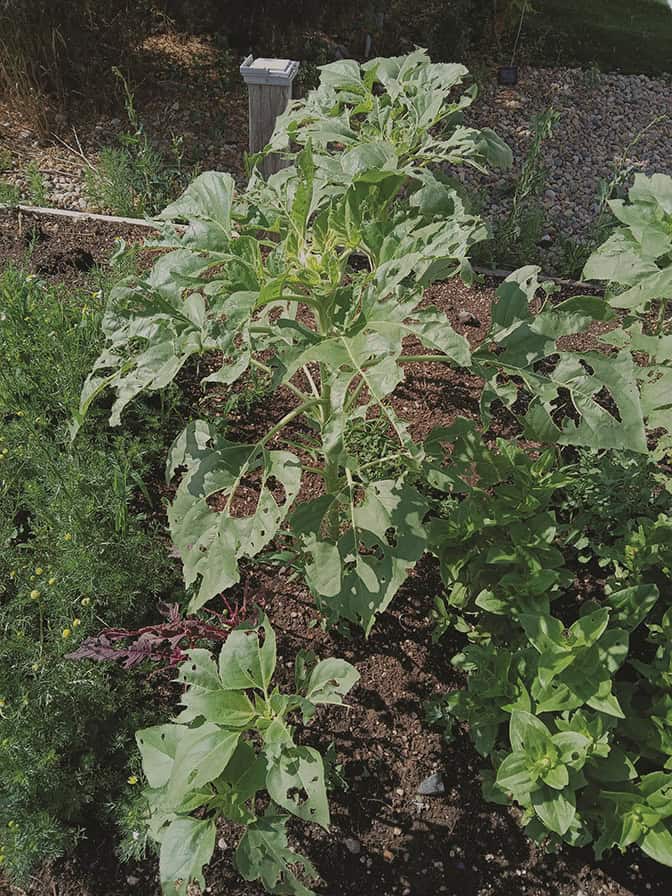
The grasshoppers are a summer constant at our place, so it’s hard to say if they are worse this year. But the consensus is that, generally, they are at rarely seen levels. “Hopperpocalypse,” the Colorado Springs Gazette termed it, with the headline: “Colorado farmers say this year’s infestation the worst in generations.”
The folks at Ahavah Farm, the regenerative, small family farm in Peyton, would agree. “It’s mind-blowing,” founder Yosef Camire told a crew from Denver 7 News in describing the devastation caused by the grasshoppers.
“This summer stinks,” a Facebook post from the farm stated simply as it outlined all the steps workers have employed, from pepper spray to vacuums to rotating ducks through the garden to eat the hoppers. (Full disclosure, my son is among those workers.) One thing that has worked, the farm says, has been “bin-running, where we take a bin and run through the greenhouse brushing the grasshoppers into the bins and capturing them.” Videos of the grasshopper-filled bins are truly impressive; still, it hardly makes a dent in the pest population. And chemical pesticides are not an option for the “beyond organic” farm.
We steer clear of pesticides, too, as we don’t want to endanger our bees in protecting our garden beds. Some of those beds are covered in netting, which helps, and some plants, like chamomile, tomatoes and pumpkins, seem to hold little attraction for the grasshoppers. And our rhubarb produced a decent harvest before the grasshoppers grew; now there is nothing left of the plant. But between the grasshoppers and the lack of rain, other plants have suffered. Our chickens, when they can be lured out from their area, will go after the grasshoppers but they’re not very competent hunters. (I’m told guinea fowl are much more efficient.)
The grasshoppers were another topic on Nextdoor, where recommendations to fight them ranged from spent coffee grounds to buckets of molasses to acquiring praying mantises.
“Oh Lord, I’m about to pull up everything the darn things haven’t destroyed,” one person lamented. “It’s like the house of horrors.”



